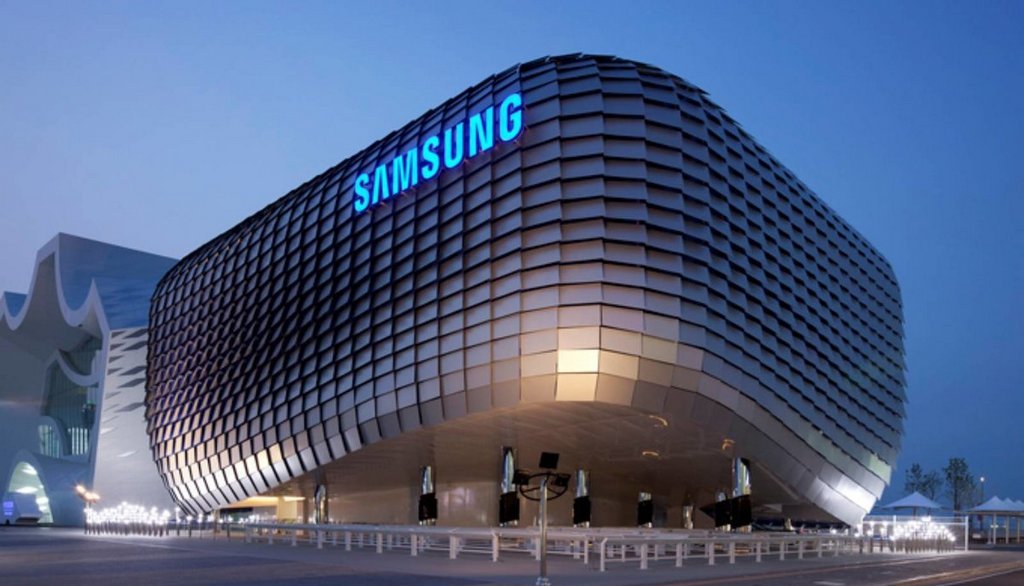
- Blog
PepsiCos cold chain success
PepsiCo’s innovative cold chain logistics ensure product...
From chip innovation to sustainable sourcing and blockchain traceability, Samsung is rethinking supply chain resilience and proving the power of purposeful innovation.

As one of the world’s leading electronics and semiconductor giants, Samsung operates at the heart of a highly complex, global supply chain. From raw material sourcing to end-user delivery, every node in the chain is vulnerable to disruption and Samsung has seen more than its share over the past few years.
This post explores how Samsung is navigating a shifting geopolitical landscape, semiconductor volatility, workforce demands and growing pressure for sustainable, tech-enabled supply chains.
We also highlight some less discussed but critical elements: how labor unrest and AI innovation are shaping Samsung’s next chapter in supply chain resilience.
Samsung’s global footprint has historically provided a competitive edge, but it also exposes the company to sudden geopolitical shifts.
In early 2025, the U.S. administration announced a 25% tariff on South Korean imports, including TVs and appliances. While South Korea entered negotiations seeking an exemption, Samsung promptly assessed relocation options.
Currently, most Samsung TVs for the U.S. market are assembled in Mexico and California, with appliances produced in South Carolina and Baja California.
A complete production shift could help Samsung sidestep tariff costs and shorten lead times, reflecting a broader trend among global manufacturers to regionalize supply chains for enhanced resilience.
Industry Insight : A 2023 McKinsey survey revealed that 44% of companies are developing regionalized supply networks, up from 25% the previous year, indicating a significant shift towards regionalization in response to global disruptions.
The ongoing US–China tech decoupling has had a chilling effect on chipmakers. Samsung’s device solutions unit, which includes its memory and logic chip business, reported a 62% drop in operating profit in Q1 2025, largely driven by export restrictions targeting high-bandwidth memory (HBM) chips used in AI hardware.
Samsung is now accelerating qualification of its HBM3E chips for AI customers like NVIDIA, while navigating a sales slowdown in China, one of its largest markets. This delicate balance of maintaining compliance while staying competitive exemplifies the tightrope semiconductor giants must walk in today’s AI-driven, fragmented economy.
What many analyses overlook is the growing impact of workforce unrest.
In mid-2024, Samsung experienced the first labor strike in its 55-year history. Sparked by disputes over bonus transparency and leave policies, the strike lasted nearly two months and signaled a growing assertiveness among Samsung's unions.
This human factor is often left out of supply chain risk models, yet it can halt production just as effectively as a trade embargo or chip shortage.
Samsung works with over 2,500 suppliers worldwide; a vast ecosystem it is seeking to make more sustainable and transparent. Through its Eco-Partner certification program, Samsung evaluates suppliers on environmental impact, hazardous substance management and compliance with global standards.
Additionally, the company offers training and technical support to help partners improve emissions reporting, energy usage and ethical sourcing practices, particularly around conflict minerals.
Source: Samsung Sustainability Report
Samsung isn’t just reacting to disruption; it is reengineering its supply chain for intelligence and traceability. Through Samsung Data Systems ( SDS) the company uses AI analytics (via the Brightics platform) to detect bottlenecks and optimize routing in real time. Their logistics platform, Cello, enables dynamic orchestration across inventory, shipping and last-mile delivery.
Samsung is also experimenting with blockchain to enhance traceability and reduce fraud across global supplier tiers; a key step in achieving full material visibility and ESG accountability.
Emerging Trend: AI-native supply chains are becoming the norm. According to Gartner, by 2026, over 75% of large enterprises will have moved to AI-augmented supply chain operations.
Samsung’s supply chain response offers a masterclass in modern risk navigation. The company isn’t simply weathering external pressures, it is reshaping its supply chain strategy to anticipate, absorb and adapt to disruption.
Samsung sets a forward-looking standard by
For any manufacturer aiming to build resilience in an unpredictable world, Samsung’s playbook is worth studying - especially the parts that go beyond headlines.
Samsung’s experience is a clear signal: global supply chains must be built for agility, transparency and real-time decision-making. At Infios, we help companies (both small and enterprise) achieve exactly that.
Our end-to-end supply chain execution solutions are designed for today’s environment — one defined by volatility, complexity and constant change. Whether it’s:
We equip supply chain teams to do more than just survive disruption. We help them turn uncertainty into competitive advantage.
Want to see how Infios can help you build a more resilient supply chain?
Talk to a supply chain expert and discover how Infios can help you build a more resilient, future-ready supply chain.
